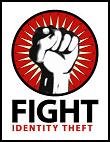Appraiser Identity Theft
 According to Brian Weaver, a practicing appraiser for over 25 years and investigator for the Office of Banks and Real Estate in Illinois, has recently researched Appraiser Identity Theft in Illinois and others states. Click here for the complete report: License To Steal The Illinois Coalition of Appraisal Professionals commissioned this study and resulting article. www.icapweb.org
According to Brian Weaver, a practicing appraiser for over 25 years and investigator for the Office of Banks and Real Estate in Illinois, has recently researched Appraiser Identity Theft in Illinois and others states. Click here for the complete report: License To Steal The Illinois Coalition of Appraisal Professionals commissioned this study and resulting article. www.icapweb.org
Brian Weaver has suggested that there are three main scenarios of appraiser identity theft and forgery currently taking place.
- First, there is the appraiser-trainee who is fed up with splitting fees with their sponsor/ mentor and has decided to forge their mentor’s name and affix their mentor’s license number to reports without their mentor’s knowledge or permission.
- Second, there are appraisers who go phishing for license numbers. The term phishing refers to the current internet ploy by computer hackers to scour cyberspace for usable personal data that can be exploited.
- The third and most disturbing trend involves persons who never were licensed appraisers, yet find this to be their crime of choice. Like those who go phishing, they come up with almost random victims and prepare bogus reports for hefty fees.
- Remove your license number from your business card (if legally permissible).
- Remove your license number from your stationery (if legally permissible).
- Remove your license number(s) from your website and e-mail stamp (if legally permissible). This includes removing the actual image of your license.
- Remove your license number from websites that advertise your services (if legally permissible).
- Stop sharing your software signature codes with everyone in the office.
- Stop taping signature codes on the wall next to the computer at the office.
- Try using something a little more complex than “appraiser” for a password.
- Eliminate your E&O declaration page from your website.
- Be more circumspect about who has access to your license.
I have to admit that I had been guity of breakling almost ALL of those rules. After the article came out, I got a call from T. J. McCarthy at ICAP to advise me of the risks I was taking wih having my license, resume, and E&O certificate available from my web site.
After his call I took advantage of a "Password Protected Page" feature that my web host provides. This allows me to keep my private information private . . .but available to trusted clients and those that need to know. To see how that works on my site go to Licenses & Certificates .

0 Comments:
Post a Comment
<< Home